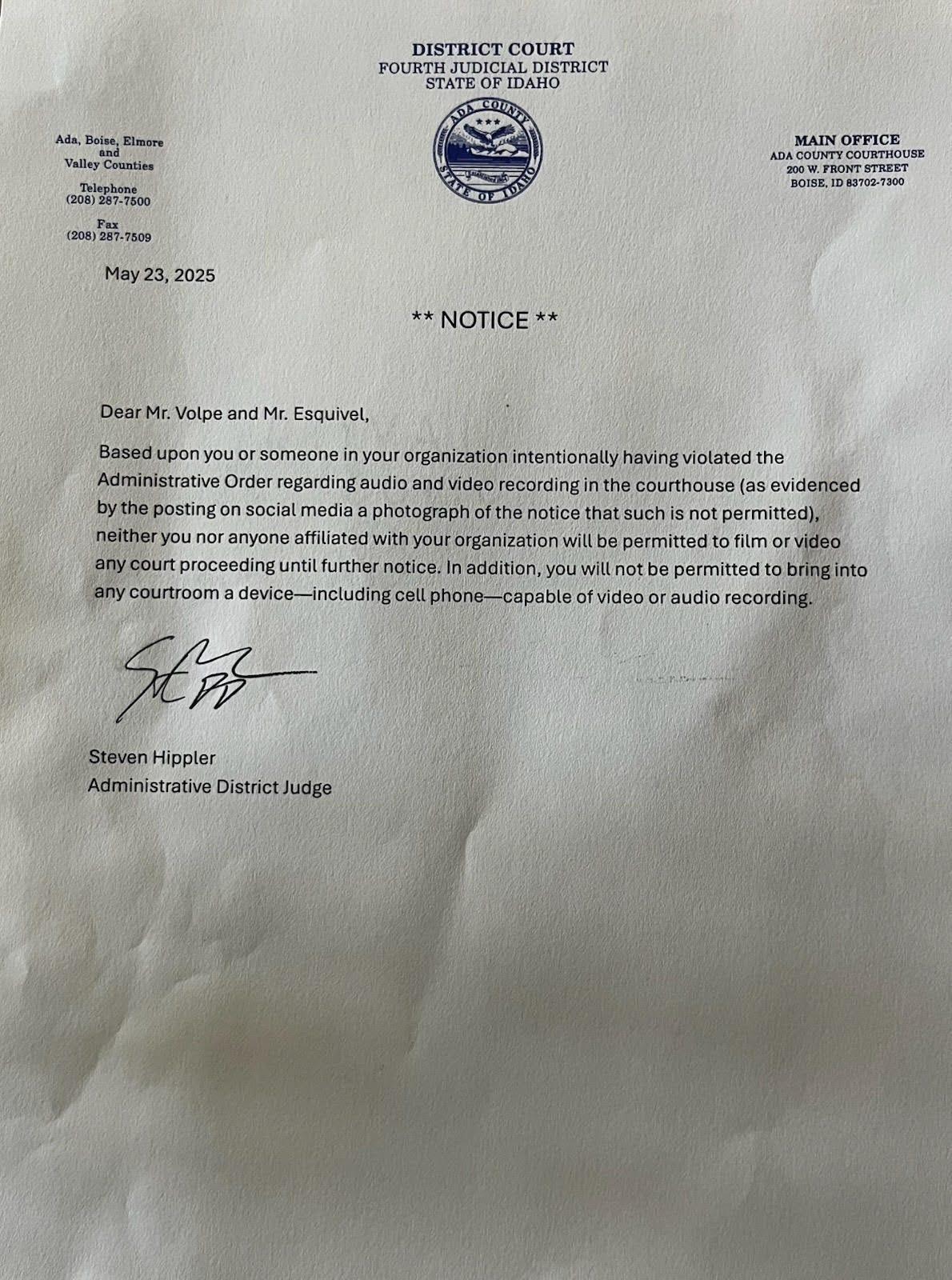
Last week, in between causing trouble in Ada County Courts, I met with some state politicians in Idaho, as well as Arizona Republican State Senator Mark Finchem.
Finchem has become the face of a unique idea in state legislating.
After speaking with numerous parents, Finchem, along with Republican Representative Rachel Keshel, spearheaded the creation of the Joint Legislative Ad Hoc Committee on Family Court Orders.
This led to hundreds of parents testifying, along with HB 2256 passing out of both chambers.
HB 2256 would bar therapeutic intervention appointments in Arizona child custody case, unless both parents consent.
Unfortunately, Arizona Democratic Governor Katie Hobbs vetoed the bill.
Senator Mark Finchem is expressing outrage after learning Governor Hobbs callously vetoed legislation that would have protected the safety and civil rights of children in Arizona's family court system.
"This commonsense measure would have safeguarded Arizona's vulnerable youth from the horrors of court-ordered reunification programs and the financial burdens they pose on parents after divorce proceedings," said Senator Finchem, Chairman of the Joint Legislative Ad Hoc Committee on Family Court Orders. "It is unconscionable that the governor chose to uphold a system that silences victims, strips them of their rights, and allows for abuse under the guise of justice."
With the adoption of a strike everything amendment from Senator Finchem, HB 2256, sponsored by Representative Rachel Keshel, would have prohibited a court from ordering payment, without the appropriate party's consent, for therapeutic intervention in specified proceedings. The bill also established requirements for expert testimony in these proceedings.
State Senator Finchem told us that Governor Hobbs, a former social worker, was protecting the system which has turned family court in an “industrial complex” with her veto.
Proponents of the veto argued that there is already a provision requiring that a parent have “an ability to pay” before a therapeutic interventionist is approved, and that judges need as many tools as possible to solve complex family court issues.
Senator Finchem rejected that notion, stating that bills can run into the hundreds of thousands- all coerced- for these services.
Last week, Senator Finchem was in Idaho meeting with some state legislators there to brainstorm about reforming, but in particular, to talk about possibly having Idaho follow Arizona’s lead and form their own ad hoc committee on family court.
He said he hoped that hearings would start as early as June 2025.
He also told us that state legislators from five states have reached out to him, wanting information to hopefully get an ad hoc committee in their state.
We also debated my idea- which I call The Elaine Pudlowski Act- for all eliminating all court appointees in family court.
Senator Finchem said he didn’t want to go that far because he believes that courts sometimes need an investigative arm. Instead, he wanted to remove the quasi-judicial immunity that court appointees enjoy, while implementing other safeguards.
Richard Luthmann noted that a guardian ad litem (GAL) was introduced as akin to a special master. Richard, who practiced law for many years, said there is longstanding tradition in courts outside of family court.
He said things evolved primarily with the movie Kramer Vs. Kramer, and the court has turned into an industry. Court appointees focus primarily on billable hours rather than investigation.
I continue to stand by my belief that true reform only comes when courts can no longer appoint anyone.
Interestingly, in Idaho, the state legislature has recently gone the other way, ushering in legislation to make court appointments easier.
A major update to Idaho family law in 2024 gives judges more flexibility in protecting children during divorce proceedings. As of July 1, courts may appoint a guardian ad litem (GAL), a neutral advocate focused on the child’s best interests, instead of a traditional attorney. This change, enacted through House Bill 629, expands the tools available to judges in custody and parenting time disputes.
…
Starting in 2025, Idaho courts will have clearer guidance on how and when to appoint attorneys to represent children in custody disputes. Revised Rule 118 creates a formal structure for assigning a child advocate to speak for the child’s preferences or serve as a guardian ad litem focused on their best interests. This rule gives judges a more consistent framework for handling sensitive or high-conflict family law cases.
The three of us also debated presumed 50/50 custody, Trump’s first months in office, and more.















Share this post